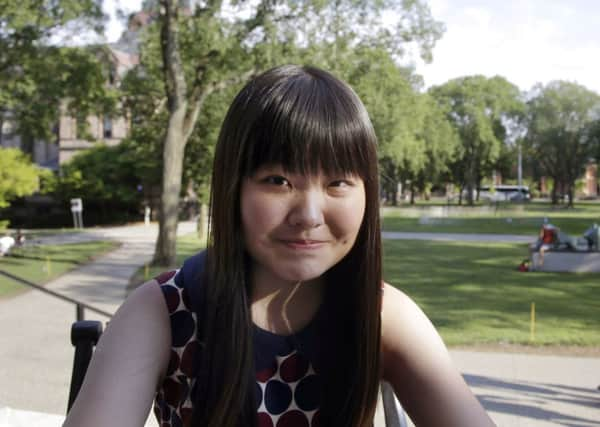Chinese pupils go to US for more rounded education


With more than 333,000 of its students in US colleges and graduate schools, China has long been the top feeder of international students in American higher education.
Now Chinese high school pupils are following suit in astonishing fashion, with US schools welcoming 50 times more than in 2005. Last autumn, the US issued 31,889 student visas to Chinese youths planning to attend American high schools, up from just 639 in 2005.
Advertisement
Hide AdAdvertisement
Hide AdChina has also overtaken South Korea as the number one country of origin for foreign students in US high schools, with its elite families leading the way with their children vying for spots in prestigious preparatory schools.
The high school pupils want to escape the rat race at home, where students often study late into the night with little opportunity for extracurricular activities. They also believe studying in the US will help them snag coveted spots at more prestigious American colleges.
“The competition has grown fiercer, and there has been pressure to go to US high schools to gain an edge,” said Xu Yi, who runs a tutoring and consulting agency for Chinese students.
Though surveys have shown that Chinese students perform well ahead of their American peers in subjects such as maths and reading, top-level US schools remain highly regarded among educated Chinese for developing critical thinking and communication skills.
“China boasts solid elementary and secondary education, especially in math, but it lacks innovation,” said Wang Huiyao, president of the Beijing-based Centre for China and Globalisation. “Chinese students may be able to memorise formulas but they lack ‘soft skills’ such as people skills and the ability to communicate with global language and culture.”
Like a growing number of Chinese teenagers, 16-year-old Zhang Kaisheng plans to enrol this autumn in a private US high school where he and his parents hope he will get a more well-rounded – if far more expensive – education. Tuition, room and board can cost around $40,000 (about £24,000) – three to four times more than an elite private school in China.
“I feel like the US education fits me better and will allow me to do things I like to do,” said Mr Zhang.
Chinese with US college degrees usually can expect broader career prospects, as China has become increasingly globally minded, with more opportunities for foreign-educated youth.
Advertisement
Hide AdAdvertisement
Hide AdChinese parents see the cost of private US high schools as an investment. “If he can develop a multitude of skills and be a well-rounded person, it would be money well spent,” said Mr Zhang’s mother, who is president of a state bank branch in Beijing.
For many students, the chance to study in the US opens up new opportunities. Riley Peng, the daughter of a successful entrepreneur, disliked the emphasis on rote memorisation in China, and now is engaged in a variety of classes and extracurricular activities at Choate Rosemary Hall in Wallingford, Connecticut, including the cross-country team. “There are many things I now get to experiment with,” she said.
Ms Peng’s friend Lisa Li, who attends Lawrence Academy in Groton, Massachusetts, said she felt like a failure if she didn’t get the top test score in her class in Beijing. Her academic work in the US is also rigorous, but she said she doesn’t feel the same kind of pressure, and is now encouraged to explore other interests, like music composition.
“It is so worth it, although it is highly challenging,” Ms Li said. “US prep schools are demanding intellectually, but they also emphasise creativity. It has helped me find my direction.”
Unlike private schools, US public school districts cannot enrol foreign students for more than one year because of federal restrictions.